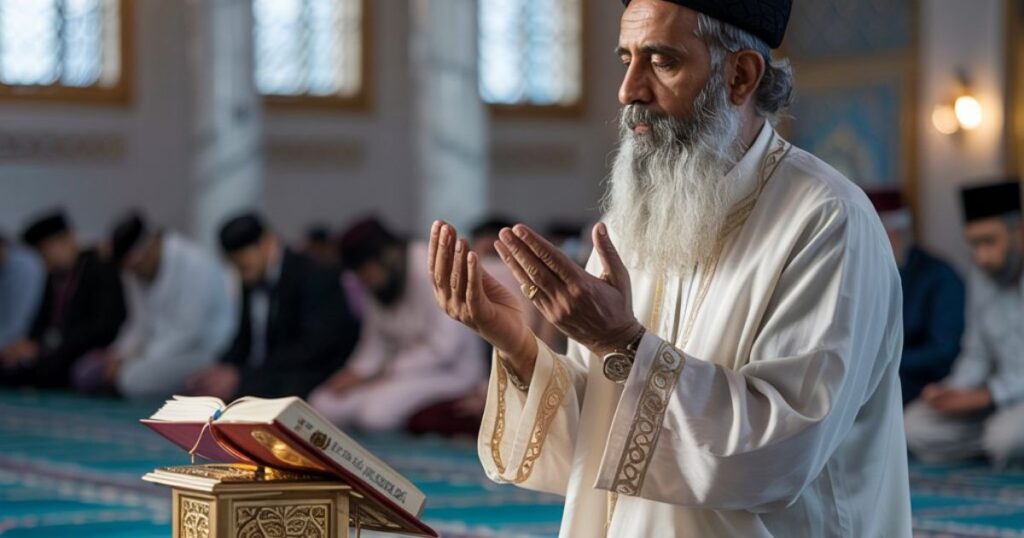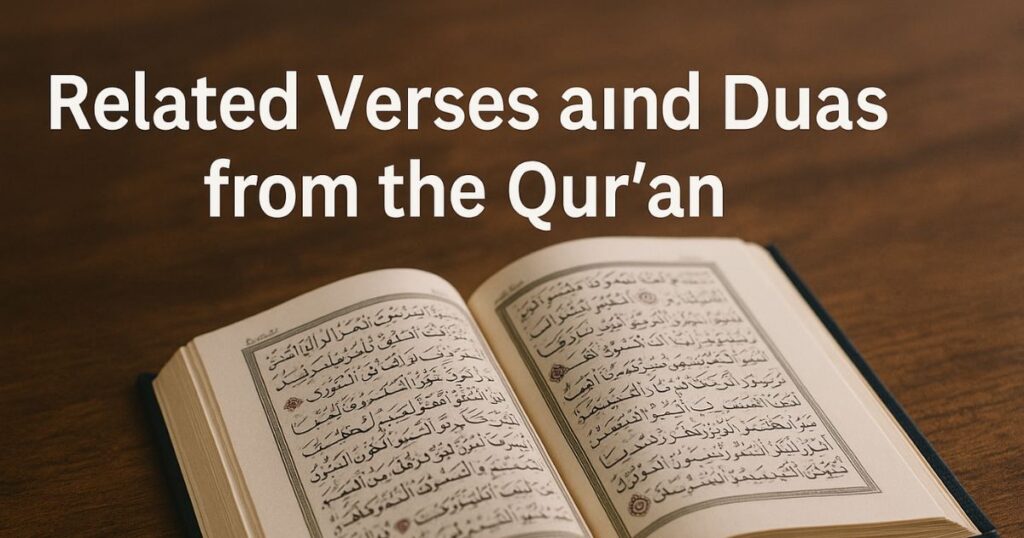Taraweeh Dua in English is an important prayer for Muslims during the holy month of Ramadan. It is often recited during the Taraweeh prayers, which are offered after the Ishan prayer. The Taraweeh Dua in English is a way for worshippers to connect with Allah through heartfelt supplication. It provides spiritual upliftment and peace. Muslims believe that reciting the dua between taraweeh brings blessings and mercy from Allah.
The English translation taraweeh dua helps worshippers understand the meaning of their prayers. In the ramadan taraweeh dua, Muslims seek protection from Hellfire, mercy, and Allah’s guidance. The taravih dua is a reminder of Allah’s sovereignty and power. Reciting this dua during Ramadan strengthens one’s faith and reflection.It’s a time to ask for forgiveness, blessings, and spiritual growth. Whether you’re reciting the Taraweeh Dua in English or another version, its significance remains deep in the hearts of worshippers.
What Is the Taraweeh Dua in English?
The Taraweeh prayer is an important part of Ramadan, where Muslims gather to offer additional prayers after the Isha prayer. The prayer includes special supplications asking for Allah’s mercy, forgiveness, and blessings. These supplications are an essential part of the prayer and help deepen the worshipper’s connection with Allah during this holy month.
The dua recited during Taraweeh is deeply meaningful. It includes requests for spiritual growth, protection from the Hellfire, and the guidance to live a righteous life. This prayer brings emotional and spiritual upliftment, offering solace and peace to the hearts of worshippers. The dua is often recited after each set of prayers, providing a moment of reflection and supplication.
Understanding the meaning behind the dua enhances the experience of Taraweeh. Worshippers who recite the dua feel a deeper connection to Allah, seeking blessings not only for themselves but for the entire community.
The Taraweeh Dua in English – Full Translation and Meaning

The Taraweeh Dua in English holds great significance during Ramadan. It offers an opportunity to connect with Allah through heartfelt supplication. This dua asks for forgiveness, mercy and protection from Hellfire. It serves as a reminder of Allah’s sovereignty and guides worshippers in their spiritual journey.
- Exalted is the One who hears all supplications and responds.
- Exalted is the One who holds the keys to mercy and forgiveness.
- Exalted is the One who grants refuge from the flames of Hellfire.
The Taraweeh Dua brings worshippers closer to Allah’s mercy, offering comfort during the blessed nights of Ramadan. By reciting this dua, we reflect on Allah’s power and majesty. It helps strengthen our faith, reminding us of the importance of spiritual growth and seeking forgiveness. Through these prayers, Muslims also ask for protection from punishment and for blessings in this world and the next. The Taraweeh Dua enriches our worship, making Ramadan even more meaningful.
Is This Dua from the Sunnah? What Scholars Say
The question of whether a particular dua is from the Sunnah is an important one for many Muslims. It helps to understand the authenticity and significance of the supplication in Islamic practice. Scholars of Islam have thoroughly discussed and debated various prayers and supplications, especially those associated with key practices like Ramadan and Taraweeh.
When it comes to this dua, many scholars agree that it is indeed rooted in the Sunnah of the Prophet Muhammad ﷺ. The dua is part of the established traditions of worship, particularly in the context of night prayers. Its roots can be traced back to authentic Hadith, where the Prophet ﷺ instructed his followers to make supplications during these blessed moments of worship.
However, there is always a need for caution. Not all duas or prayers are universally accepted as part of the Sunnah. Some may have weak or disputed chains of narration. In such cases, scholars emphasize the importance of verifying sources and ensuring the authenticity of the supplication before incorporating it into daily worship.
Despite differences in opinion on certain aspects, the general consensus is that this dua holds great spiritual value and is consistent with the practices of the early generations of Muslims. Scholars often highlight that such duas are a means of deepening one’s connection to Allah and seeking His mercy and forgiveness.
Ultimately, the practice of reciting this dua aligns with the Islamic teachings of prayer and supplication. While debates continue on some specifics, the overall message of seeking Allah’s mercy remains central to Islamic worship.
When and How It’s Recited in Taraweeh
Taraweeh prayers are special night prayers during Ramadan, performed after the Isha prayer. They are offered in congregation at the mosque, with worshippers joining together to seek spiritual rewards. The timing of the prayers is significant as they occur after the obligatory evening prayers, allowing Muslims to engage in extra worship. The act of praying Taraweeh together strengthens community ties and enhances the spiritual experience of the month.
The recitation of the prayer begins after the Isha prayer, with the imam leading the congregation. The prayer is performed in sets of two rak‘ahs, with the number of rak‘ahs varying depending on the tradition. Some communities pray eight rak‘ahs, while others may pray up to twenty. Each rak‘ah involves reciting portions of the Quran, with the imam guiding the worshippers.
In addition to the Quranic recitations, specific supplications are made during the prayer. These are heartfelt requests for mercy, forgiveness, and protection from Allah. The dua is often recited after a few rak‘ahs, providing worshippers an opportunity for personal reflection and supplication.
Worshippers can also offer personal prayers during the intervals of the prayer. These personal supplications are encouraged, allowing individuals to ask Allah for guidance and blessings.
The practice of reciting these prayers is deeply rooted in tradition. It is a time for spiritual growth, unity, and devotion.
Read Also: 60+ Islamic Birthday Wishes & Duas (English, Arabic & Urdu)
The Authentic Qunoot Dua of Witr

The Taraweeh Dua in English holds deep spiritual significance during Ramadan. It allows worshippers to understand the meaning of their prayers and connect with Allah. Reciting the Taraweeh Dua in English brings peace, mercy and blessings to those who seek spiritual upliftment, deepening their relationship with Allah.
“Exalted is the Possessor of the hidden and the manifest dominion.
Exalted is the Possessor of Might, Greatness, Reverence, Power, Pride, and Majesty.
Exalted is the Master, the Living, the One who neither sleeps nor dies.
All-perfect, All-holy, our Lord and the Lord of the angels and the souls.
O Allah, grant us refuge from the Hellfire.
O Granter of refuge, O Granter of refuge, O Granter of refuge.”
The Qunoot Dua of Witr is a powerful supplication recited during the Witr prayer in Ramadan. It is a plea for Allah’s mercy and protection. This prayer is deeply cherished in Islamic tradition for its emotional connection and the heartfelt request for refuge from Hellfire.
By reciting this dua, worshippers ask Allah for guidance, forgiveness and peace during the blessed month. It serves as a reminder of the importance of devotion, trust, and seeking Allah’s protection from harm. Through such supplications, Muslims draw closer to Allah and feel the spiritual significance of Ramadan more deeply.
Why Muslims Still Hold on to the Taraweeh Dua
Muslims continue to hold on to the Taraweeh Dua because it offers a deep spiritual connection during the holy month of Ramadan. This prayer is a chance to reflect on one’s faith and seek Allah’s mercy. It brings a sense of peace and comfort, especially during the long nights of worship.
The prayer provides a structured way to communicate with Allah. Muslims believe it brings blessings and strengthens their relationship with their Creator. It serves as a reminder of Allah’s attributes and encourages gratitude for His countless blessings.
Furthermore, the Taraweeh Dua is part of a long tradition passed down through generations. Its continued recitation connects Muslims to their ancestors and the rich history of their faith. It is a reminder of the importance of prayer and devotion in daily life.
For many, this prayer is a time for personal supplication. It allows worshippers to ask for forgiveness, guidance, and protection, especially during the blessed month.
Overall, the Taraweeh Dua remains significant because it offers both spiritual growth and a deep connection to Allah.
Related Verses and Duas from the Qur’an

The Qur’an is filled with powerful verses and duas that enhance the spiritual experience of worshippers. These verses encourage reflection, supplication, and seeking Allah’s mercy. The following examples from the Qur’an highlight the beauty of supplication and submission to Allah.
- “Say: O Allah, Owner of the dominion. You give sovereignty to whom You will”
Surah Aal-Imran, 3:26 - “Our Lord, do not impose blame upon us if we forget or make a mistake.”
Surah Al-Baqarah, 2:286 - “And when My servants ask you concerning Me, indeed I am near.”
Surah Al-Baqarah, 2:186 - “Indeed, Allah is over all things competent.”
Surah Al-Imran, 3:97 - “Say: Call upon Allah or call upon the Most Merciful. Whatever [you call – to Him – belongs]…”
Surah Al-Isra, 17:110 - “Indeed, those who believe and do righteous deeds – for them is the best reward.”
Surah Al-Kahf, 18:96
Incorporating these verses into prayer deepens one’s connection with Allah, offering guidance and mercy through sincere supplications.
FAQ’s
1. What is Taraweeh Dua?
Taraweeh Dua in English is a prayer recited during the Taraweeh prayers in Ramadan. It helps worshippers connect with Allah and seek His mercy and blessings.
2. Why is Taraweeh Dua important?
The Taraweeh Dua in English allows worshippers to understand the meaning of their supplications. It brings spiritual upliftment and strengthens their connection with Allah during Ramadan.
3. When do we recite Taraweeh Dua?
Muslims recite the Taraweeh Dua in English during Taraweeh prayers after Isha in Ramadan. It is often recited between rak‘ahs, offering heartfelt supplications to Allah.
4. What does Taraweeh Dua include?
The Taraweeh Dua in English includes requests for mercy, forgiveness, and protection from Hellfire. It highlights the spiritual significance of Ramadan and strengthens one’s faith.
5. Can I make personal duas during Taraweeh?
Yes, you can make personal duas during Taraweeh prayers. Along with the Taraweeh Dua in English, you can ask Allah for personal blessings and guidance.
Conclusion
Taraweeh Dua in English plays a vital role in the Ramadan prayers. It allows worshippers to understand and connect with the meaning of their supplications. Reciting the Taraweeh Dua in English provides spiritual upliftment and strengthens one’s relationship with Allah. The dua is recited during the Taraweeh prayers, bringing peace and guidance to the heart of each worshipper.
The Tarawih Dua in English is also a reminder of the mercy of Allah. It helps Muslims seek forgiveness, protection from Hellfire, and blessings during Ramadan. Whether recited after each rak‘ah or during personal supplications, the Tarawih Due in English brings a sense of reflection and gratitude. As you recite the Taraweeh Dua in English, let it deepen your connection to Allah and bring peace to your heart during this blessed month.

